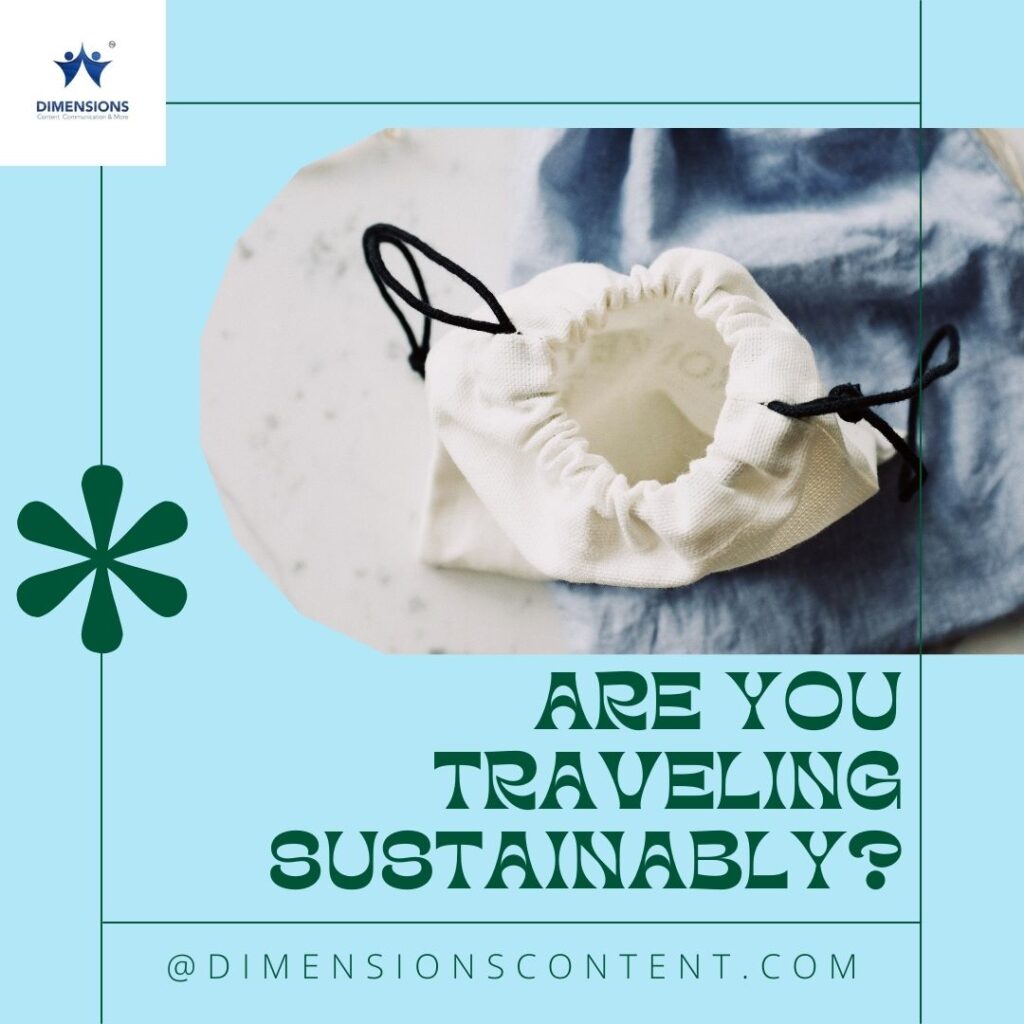How to Introduce Sustainability in Traveling?

Sustainability, a life choice, is now being incorporated into every means of development- from strengthening cultural understanding to aiding wildlife conservation. One cannot complain of having two minds about the positive impacts of Travelling. Yet, there are adverse effects, too, such as pressing demands on natural resources, overcrowding in the cities, and overconsumption of fossil fuels by the majority of airlines. The issues have been over and again discussed by environmentalists and thoughtful travel writers in their reports and blogs.
Now here comes the idea of Sustainable Tourism to strike a balance between economic boom, cultural diversity, and environmental health. With a growth mindset about sustainability among people, minimizing ecological footprint is emerging to be the next big trend. Having said that, we could be certain about its results if only careful considerations and measures were ascertained collectively.
In fact, the outlook has to be broader, with you making some very minute and untroublesome changes to your travel so that it becomes sustainable. Now, let’s see how:
- Get off the Multitude:
Before the pandemic had hit, people had lengthy lists of dream destinations to plan their holidays. These famous places have also evidenced the surge in the number of cases and eventual spread of the disease. Therefore, an intelligent traveler, post-pandemic, would consciously skip visiting overcrowded tourist spots and be more eager to discover lesser explored places on Earth. There are countless sustainable travel destinations in India, which not many people know about but stand apart for their spectacular beauteous settings.
- Opt for Efficient Modes of Transportation:
A survey in recent times reported that 8% of the world’s carbon emissions are caused due to tourism and travel. It not only results in climate change but also grievously threatens the tourism industry. Air travel and driving generate the most tremendous amount of carbon footprint. While developing an itinerary, choose public transport, cycle, or electric scooter for traveling to nearby places. Although every mode of transportation necessitates energy, some have lesser emissions, and you get to bask in the glory of nature while reaching the destination.
- Choose sustainable accommodations:
Your conscious effort can contribute immensely, which can simply be done by rejecting stay options that negatively impact the environment or exploit the local communities. Instead, you can choose eco-friendly resorts and villas that make a difference by supporting sustainable tourism. Several hotel chains have brought a shift in their attitudes by adopting best practices that reduce environmental impacts, while many still do not understand the value.
- Conserve natural resources:
Apart from transportation, tourism heavily relies upon energy for heating, lightning, and electricity. This is accompanied by extensive water consumption, thereby exerting pressure on water levels and supplies in the region. Visitors often consume more water than residents, and places fail to keep up with the demand. While enjoying your vacation, pay attention to your water and energy usage. Make sure to switch off lights and appliances before leaving the hotel every time.
- Avoid using plastics:
Each year, 8 metric tons of plastic are disposed of in the oceans, which is equivalent to at least one garbage truck being dumped in one minute. Numerous consumers and companies alike have begun refusing single-use plastics. But the irony is that they have come back in disguise of plastic gloves, grocery bags, containers, and cutleries, the usage of which has only increased since the pandemic. Beverage bottles still rank as one of the most common plastic items used and disposed of by tourists, and the best solution for the same is to carry one’s reusable bottle. Changing other habits like dining in and not eating out would prevent consequential wastage.
- Visit nature parks and protected areas:
Marine sanctuaries, national parks, and other protected areas play a vital role in shielding our planet’s natural resources and biodiversity from extinction. Many countries bank on tourism fees for the maintenance of these places. During the pandemic, mainstream revenue for such places was cut off, putting many protected areas and the lives of endangered species in jeopardy. Rising poverty has multiplied the problems as local communities opt for destructive practices for income and maintenance. While planning the itinerary, look for such places in that area and make sure you visit them. Alongside paying the admission fees, mindfully promote local communities by booking their accommodation facilities and other services.
Even a tiny change in your habit of traveling can bring about significant changes for a sustainable tomorrow. Educating people more about these practices could secure our future and protect the world from more dangers.
It is no longer a choice but a dire necessity to aid sustainable tourism development in our country. The availability of tools and information should empower employees and customers alike to embrace green practices and travel responsibly.
Tourism is back on track. After having recovered from pandemic lows, it is all set to bounce back. Innovative tour packages are being designed to attract people from all walks of life with varied needs- adventure, healing, recreation, workcation, and so on. We at Dimensions have had the opportunity to work with some of the well-known names in the tourism industry of Eastern India as their travel content writing partners. If you’re willing to rebrand your tourism startup and give your website content and blog a new lease of life, drop us an email at info@dimensionscontent.com.





